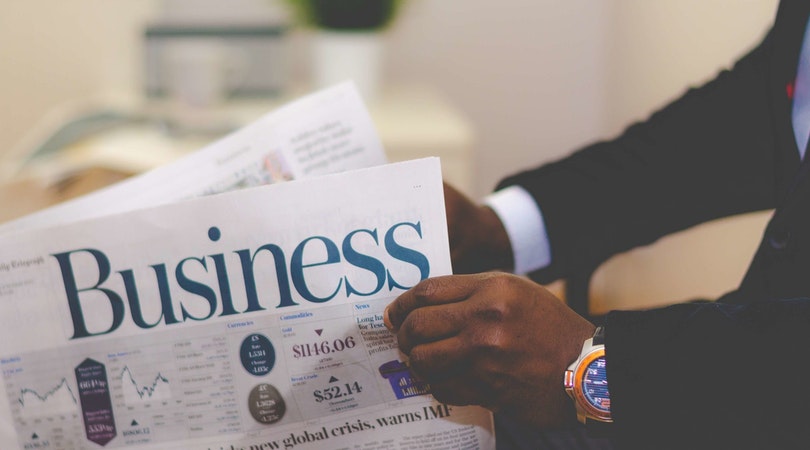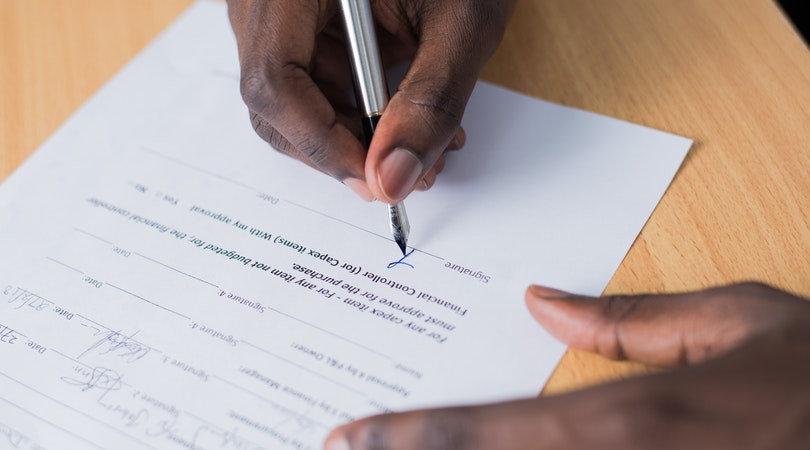Career
How to Prepare for a Job Interview: 10 Best Tips

Job interviews can be nerve-wracking, especially if it’s a job you really want. The key to acing an interview is preparation. Being well-prepared will help you to feel confident and ready to impress your interviewer. With the right preparation, you can showcase your skills and experience in the best possible light, and leave a lasting impression.
In this blog post, I will share 10 essential tips to help you prepare for your next job interview. Read on to find out how you can set yourself up for success and land your dream job!
Why is it Important to Prepare for Interviews?
Preparing for a job interview is crucial because it significantly increases your chances of success. A well-prepared candidate appears confident, knowledgeable, and organized, which can make a positive impression on the interviewer. By dedicating time and effort to preparation, you can effectively showcase your skills, qualifications, and suitability for the role.
Researching the company and the position you’re applying for allows you to align your responses with their needs and values. It also helps you anticipate and answer potential interview questions more effectively.
Do’s and Don’ts in an Interview Room
Certain do’s and don’ts can significantly impact your performance during an interview. On the do’s side, it’s crucial to maintain good eye contact with the interviewer and actively listen to their questions. Engage in active conversation, ask insightful questions about the role or the company, and provide specific examples when answering questions to highlight your experience and skills.
It’s also important to maintain a positive and professional demeanor throughout the interview, showcasing your enthusiasm and interest in the position. On the don’ts side, avoid speaking negatively about previous employers or colleagues, as it reflects poorly on your professionalism and attitude.
Refrain from interrupting the interviewer and be mindful of your body language, ensuring that it conveys confidence and respect. Additionally, avoid bringing up salary or benefits discussions during the initial interview unless the interviewer initiates the conversation.
By adhering to these do’s and don’ts, you can make a positive impression and increase your chances of progressing to the next stage of the hiring process.
10 Best Tips to Help You Prepare for Your Next Job Interview
Below are the ten (10) essential tips to guide you as you prepare to land your dream job. They include:
1. Research the Company and the Role
This step is often overlooked by candidates, but it can make a significant difference in how you present yourself and impress the interviewer. Start by visiting the company’s website and familiarize yourself with its mission, values, and company culture.
Take note of any recent news, press releases, or blog posts that can provide valuable insights into their current projects, initiatives, and overall industry presence. This information will not only demonstrate your genuine interest in the company but also help you tailor your answers during the interview to align with their values and goals.
Additionally, delve into the specifics of the role you are applying for. This will allow you to highlight relevant experiences and qualities during the interview, showcasing your fit for the position. Beyond the company’s official website, explore other sources of information such as their social media profiles, industry publications, and online forums.
Doing so will give you a broader perspective on the company’s reputation, recent projects, and any potential challenges or opportunities they may be facing. Armed with this knowledge, you can engage in meaningful conversations during the interview, demonstrating your understanding of the industry and your ability to contribute to the company’s success.
2. Be Punctual
One of the most important aspects of preparing for a job interview is to be punctual. Arriving on time or even a few minutes early demonstrates your professionalism and respect for the interviewer’s time. Plan your journey in advance, considering any potential traffic or public transportation delays.
It’s always better to be early and have some time to gather your thoughts than to be rushing and flustered when you arrive. Being punctual sets a positive tone for the interview and gives you a chance to compose yourself before it begins. During the interview, be mindful of the time as well.
Keep your responses concise and on point, avoiding unnecessary tangents. This shows that you respect the interviewer’s time and are able to communicate effectively. If you need clarification on a question or want to delve deeper into a topic, be polite and ask for permission to do so.
Being punctual extends beyond just showing up on time; it’s about being respectful of the entire interview process.
3. Understand the Job Requirements and Align Your Skills
Before heading into a job interview, it is crucial to thoroughly understand the job requirements and align your skills accordingly. Start by carefully reviewing the job description and identifying the key qualifications and responsibilities. Take note of the specific skills, experience, and knowledge that the employer is seeking.
This will give you a clear understanding of what they are looking for in a candidate. Next, evaluate your own skills and experiences. Identify the areas where you align well with the job requirements and highlight those during the interview.
Be prepared to provide concrete examples of how your past experiences have equipped you with the necessary skills for the role. Additionally, if there are any gaps between your current skills and the desired qualifications, take the time to bridge those gaps.
This could involve enrolling in relevant courses, pursuing certifications, or gaining practical experience through internships or volunteer work. Demonstrating your proactivity and willingness to learn will impress the interviewer and show that you are committed to professional growth.
By aligning your skills with the job requirements, you will not only showcase your suitability for the position but also ensure that you can confidently answer questions related to your abilities.
4. Practice Common Interview Questions
It’s crucial to anticipate the questions that hiring managers commonly ask and practice your responses beforehand. By familiarizing yourself with common interview questions, you can gain confidence and be better prepared to articulate your skills, experiences, and qualifications.
While every interview is unique, there are certain questions that tend to be asked in almost every interview. Some common interview questions include:
1. “Tell me about yourself”: This question allows the interviewer to assess your communication skills and get a general overview of your background.
2. “Why are you interested in this position/company?”: This question helps the interviewer gauge your level of interest and commitment to the role and organization.
3. “What are your strengths and weaknesses?”: This question allows you to highlight your strengths and demonstrate self-awareness by discussing areas of improvement.
4. “Can you provide an example of a time when you faced a challenge and how you overcame it?”: This question assesses your problem-solving and critical-thinking skills, as well as your ability to handle difficult situations.
5. “Where do you see yourself in five years?”: This question aims to understand your long-term career goals and aspirations.
Preparing thoughtful and concise answers to these questions, tailored to your own experiences and skills, will help you feel more confident and articulate during the actual interview. Practice with a friend or family member, or even record yourself answering these questions to assess your delivery and make adjustments if necessary.
5. Prepare Your Responses to Behavioral-based Questions
Behavioral-based questions are designed to evaluate your past experiences and behaviors to predict your future performance in a professional setting. These questions often begin with phrases like “Tell me about a time when…” or “Describe a situation where…”
To effectively prepare for these types of questions, start by identifying common behavioral-based interview questions related to your industry or job position. Researching online or seeking advice from professionals in your field can help you compile a comprehensive list.
Next, reflect on your past experiences and select specific examples that highlight your skills, achievements, and problem-solving abilities. Consider using the STAR Method (Situation, Task, Action, Result) to structure your responses.
This allows you to provide a clear and concise explanation of the situation, the task or challenge you faced, the actions you took to address it, and the positive results you achieved. It’s important to tailor your responses to align with the requirements and values of the company you are interviewing with. Review the job description and company website to gain insights into their culture, values, and desired competencies.
This will help you craft responses that demonstrate how your past experiences align with their needs. Pay attention to your body language, tone of voice, and overall demeanor during practice sessions to ensure you come across as confident, articulate, and professional.
6. Dress Appropriately For the Interview
When it comes to acing a job interview, dressing appropriately is crucial. Your appearance is the first thing that a potential employer will notice about you, and it sets the tone for how you will be perceived throughout the interview process. First and foremost, research the company’s dress code.
Different industries and companies may have different expectations when it comes to attire. If you’re unsure, it’s always better to err on the side of being slightly overdressed rather than underdressed. Dressing professionally shows that you take the interview seriously and respect the opportunity.
A well-fitted black, navy, or gray suit or business attire is typically a safe bet, as they convey a sense of professionalism and sophistication. Avoid flashy or distracting accessories, and keep your overall look polished and clean. Pay attention to the details.
Ensure that your clothes are clean, ironed, and free from any wrinkles or stains. Your shoes should be polished, and your grooming should be impeccable. Remember that every aspect of your appearance contributes to the overall impression you make on the interviewer.
It’s also important to consider the culture of the company you’re interviewing with. If it’s a more casual or creative environment, you may have some flexibility to showcase your personal style while still maintaining a professional appearance. However, always prioritize looking polished and put-together over aiming to be too trendy or unique.
7. Gather Your Documents and References
As you prepare for your next job interview, another crucial step is to gather all the necessary documents and references to present to the potential employer. This step not only demonstrates your organizational skills but also shows your commitment and preparedness for the role.
Start by collecting copies of your resume, cover letter, and any other relevant documents such as certifications, transcripts, or portfolio samples. Ensure that these documents are up-to-date, polished, and tailored to the specific job you are applying for.
Double-check for any typos or inconsistencies that might leave a negative impression. In addition to your documents, it is essential to have a list of professional references ready. These references should be individuals who can vouch for your skills, work ethic, and character.
Reach out to your former supervisors, colleagues, or mentors and ask for their permission to list them as references. Make sure to provide their contact information, job titles, and a brief description of your professional relationship. Taking the time to gather these documents and references in advance will save you from any last-minute scrambling and ensure that you present yourself as a well-prepared and organized candidate.
8. Prepare Thoughtful Questions to Ask the Interviewer
Preparing thoughtful questions to ask the interviewer is a crucial step in acing your next job interview. Not only does it demonstrate your genuine interest in the role and the company, but it also provides an opportunity for you to gather valuable information to make an informed decision if an offer is extended to you.
To come up with insightful questions, look for recent news, company values, and any industry trends or challenges that may be relevant. Consider asking about the company culture, opportunities for growth and development, and team dynamics. These questions will not only help you assess whether the company is the right fit for you but also demonstrate your eagerness to contribute and grow within the organization.
Additionally, inquire about specific projects or initiatives that the team is currently working on. This will not only showcase your enthusiasm for the role but also allow you to gain insights into the potential challenges and opportunities you may encounter if you get hired.
Remember, the key is to ask open-ended questions that encourage the interviewer to share their thoughts and experiences. Avoid asking questions that can easily be answered by a quick Google search, as it may give the impression that you haven’t done your homework.
9. Practice Your Body Language and Non-verbal Cues
Your body language and non-verbal cues can speak volumes to potential employers, so it’s crucial to practice and perfect them before the big day. Firstly, pay attention to your posture. Sit up straight, with your shoulders back and your head held high. This conveys confidence and professionalism, instantly making a positive impression.
Avoid slouching or fidgeting, as this can give off an air of nervousness or disinterest. Maintain good eye contact throughout the interview. Look directly at the interviewer when speaking or listening, but be sure not to stare too intensely. A comfortable level of eye contact shows that you are engaged and interested in the conversation. Gestures can also communicate a lot about your personality and attitude.
Use your hands to emphasize key points or to illustrate your thoughts, but keep them natural and controlled. Avoid excessive or distracting movements that may take away from your message. Mirroring the interviewer’s body language can be a subtle yet effective technique to build rapport. Pay attention to their movements and try to mimic them in a subtle and respectful manner.
This can create a sense of connection and make the interviewer feel more at ease with you. Lastly, be mindful of your facial expressions. Smile genuinely and appropriately throughout the interview, showing that you are enthusiastic and approachable. Avoid frowning or looking bored, as this can give off negative vibes.
10. Follow-Up and Thank You Notes
After the interview, it’s crucial to follow up with a thank-you note or email to express your gratitude for the opportunity to interview. This gesture not only shows your appreciation but also reinforces your interest in the position. Take the time to personalize the message and mention specific points from the interview that resonated with you.
This will help you stand out from other candidates who might send generic thank-you notes. When crafting your thank-you note, make sure to address each interviewer individually if you had multiple interviewers. Remember their names and the role they played in the interview process. It’s also a good idea to send the thank-you note within 24 hours of the interview while the details are still fresh in your mind. This promptness demonstrates your enthusiasm and professionalism.
Additionally, the follow-up can be an opportunity to reiterate key points that you discussed during the interview. If there were any areas where you feel you could provide further clarification or examples of your skills, you can include them in your thank-you note. This can help reinforce your suitability for the position and showcase your attention to detail.
Conclusion
Preparing for a job interview is essential to increase your chances of success. By implementing these 10 best tips, you can confidently enter your interview and showcase your skills and qualifications effectively. Remember to stay authentic, maintain confidence, and practice thorough preparation. These small but impactful actions can greatly contribute to your overall interview success and increase your chances of landing the job you desire. Good luck with your upcoming interviews, and may you land the job of your dreams!
Recommended:
- How to Pass a Job Interview in Nigeria
- Top 10 Universities in the UK: Most-Ranked
- How to Get a Tech Job Without a Degree: Quick Ways
- Top 10 Highest Paying Jobs in the UK
- Top 10 Highest-Paying Jobs in Singapore
📡Join Our Social Media Channels:
Facebook: theinfoWorth
YouTube: Ralph Finance












